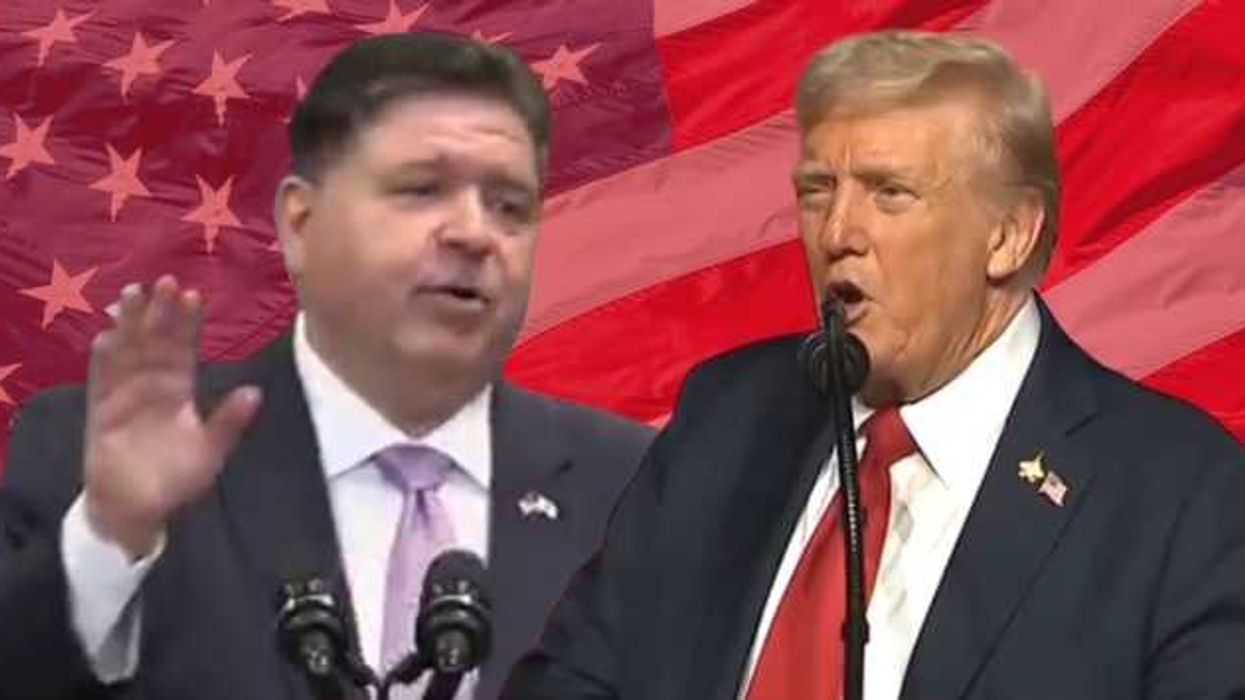CHICAGO — Illinois Governor JB Pritzker ignited a wave of political reaction this week after publicly calling for the invocation of the 25th Amendment to remove President Donald Trump from office, citing concerns over his mental fitness and inflammatory rhetoric targeting American cities.
Pitzker condemned Trump’s recent speech at Quantico, Virginia, where the president suggested using cities like Chicago as “training grounds for our military” and threatened action against “the enemy within.”
“It appears that Donald Trump not only has dementia set in, but he’s copying tactics of [Russian President] Vladimir Putin,” Pritzker said. “Sending troops into cities, thinking that that’s some sort of proving ground for war, or that indeed there’s some sort of internal war going on in the United States, is just, frankly, inane, and I’m concerned for his health. There is something genuinely wrong with this man, and the 25th Amendment ought to be invoked”.
By any measure of democratic stability, the recent rhetoric and behavior of President Donald Trump should alarm every American. When a sitting president refers to U.S. cities as “training grounds for our military,” we are no longer debating policy—we are confronting a crisis of fitness. Governor Pritzker’s bold call to invoke the 25th Amendment is not only justified, it’s overdue.
Other prominent voices echoed the governor’s remarks. Representative Eric Swalwell (D-Calif.) posted a blunt message on social media: “25TH AMENDMENT!” following Trump’s Quantico address.
Former U.S. Labor Secretary Robert Reich also weighed in, writing in a Tuesday editorial that Trump is “showing growing signs of dementia” and is “increasingly unhinged.” Reich cited Trump’s promotion of an AI-generated video about magical healing beds and his decision to deploy troops to Portland based on outdated footage from Fox News. “He’s 79 years old with a family history of dementia. He could well be going nuts,” Reich warned.
This is not political theater. It is a constitutional safeguard. The 25th Amendment exists precisely for moments like this—when the president is unable to discharge the powers and duties of the office. It is not a partisan tool, but a mechanism to protect the republic from instability, erratic behavior, and cognitive decline that threatens national security.
Critics will argue that invoking the 25th Amendment is an extreme measure. But what is more extreme—removing a president who threatens cities with military force, or allowing such threats to go unchecked? What is more dangerous—questioning a leader’s fitness, or ignoring clear signs of cognitive decline and erratic behavior?
Pritzker’s leadership in this moment is both courageous and necessary. He is not merely defending Illinois; he is defending the integrity of American democracy. His invocation of the 25th Amendment is a call to action for Cabinet members, lawmakers, and civic leaders to prioritize the country’s well-being over political loyalty.
This is not about ideology. It is about stability, accountability, and the rule of law. The president’s words and actions have consequences. They embolden extremists, undermine public trust, and destabilize communities already grappling with economic and social challenges. When Trump speaks of “the enemy within,” he is not uniting the country—he is sowing division and fear.
Governor Pritzker’s stance reminds us that leadership is not about silence or calculation. It is about moral clarity. It is about recognizing when the line between political disagreement and constitutional crisis has been crossed. That line is behind us.
The 25th Amendment is not a relic of the past. It is a living provision, designed to protect the nation from precisely this kind of danger. It is time for those in power to heed Pritzker’s call. The stakes are too high for hesitation. America deserves a president who governs with reason, not rage; with clarity, not confusion.
Hugo Balta is the executive editor of the Fulcrum and the publisher of the Latino News Network.




















Trump & Hegseth gave Mark Kelly a huge 2028 gift